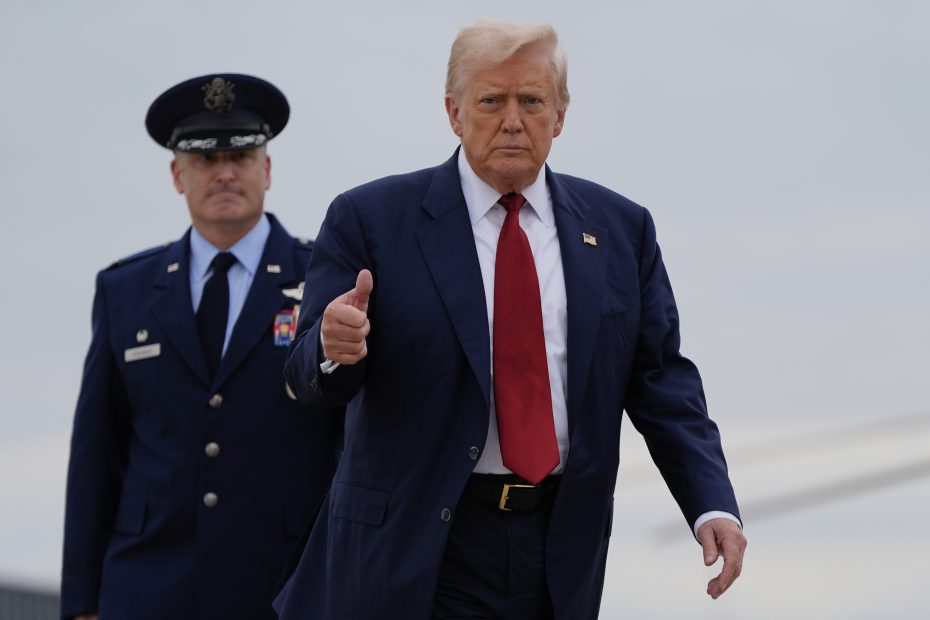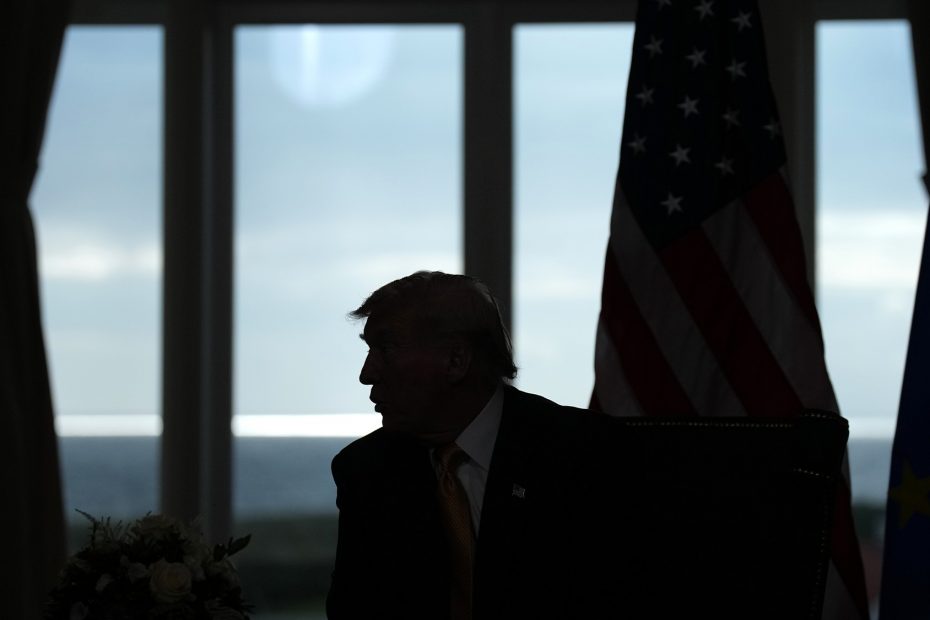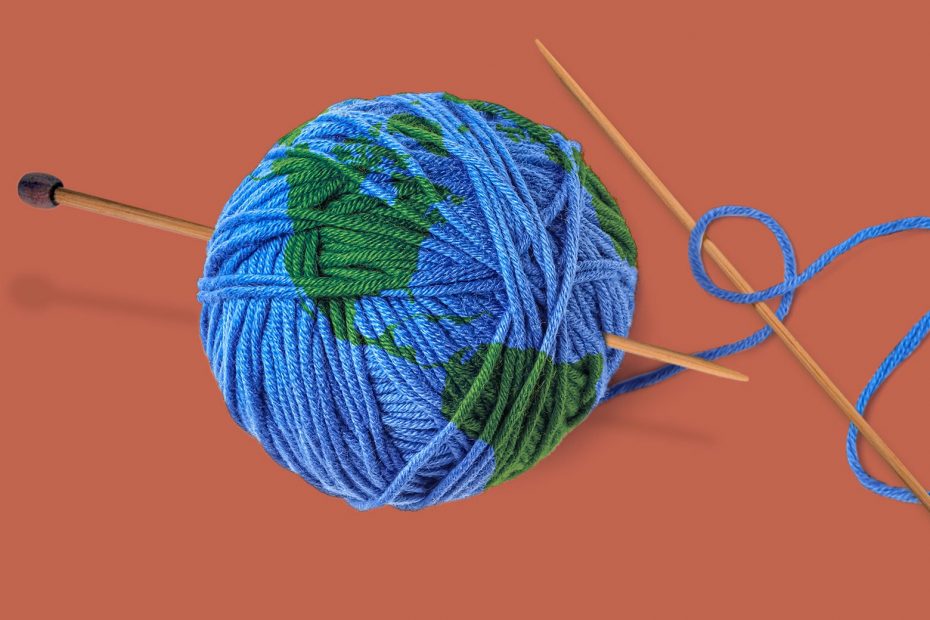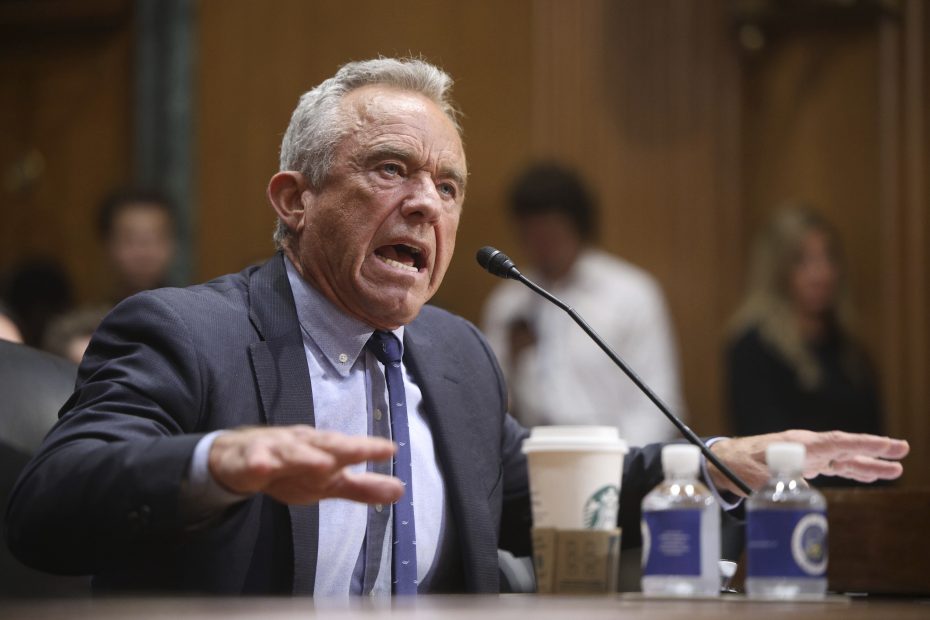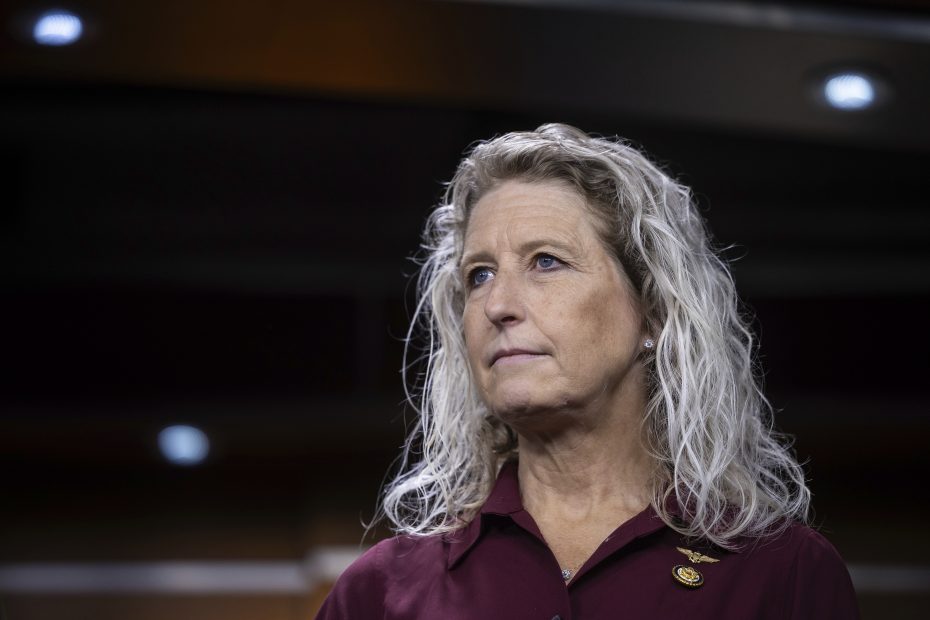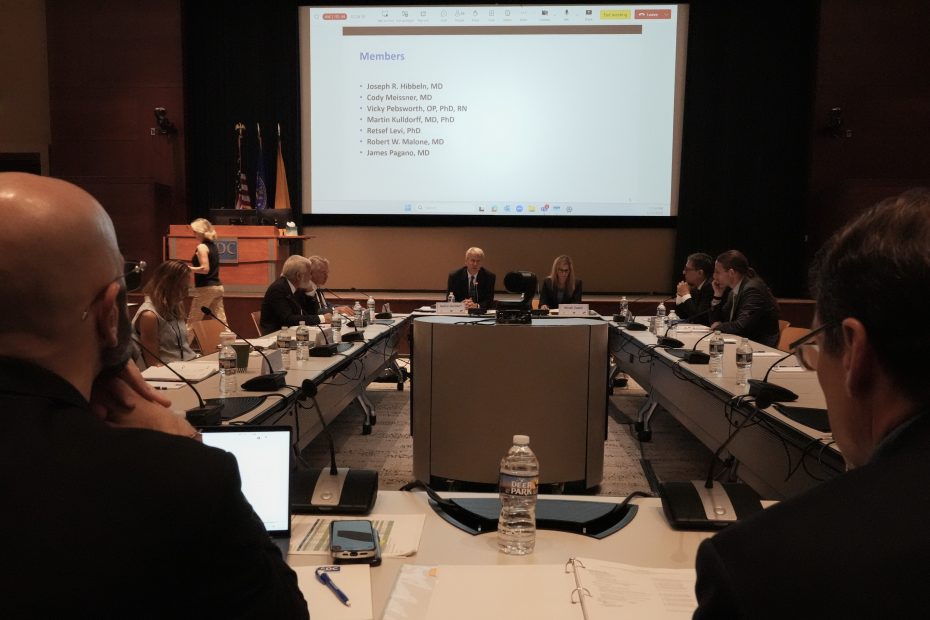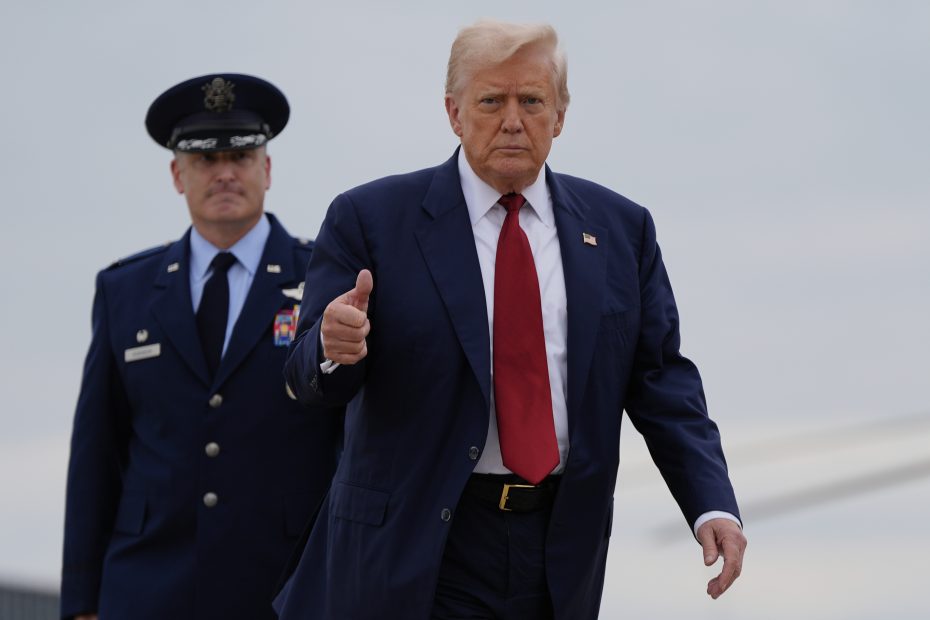Today's Liberal News
Former Trump statistics chief slams Friday firing of Erika McEntarfer
Bill Beach said the president’s suggestions that the jobs report was rigged betrayed a misunderstanding in how those numbers are assembled.
Trump fires statistics chief after soft jobs report
The monthly jobs report showed just 73,000 jobs in July, with big reductions to May’s and June’s numbers
Donald Trump’s War of Words
This is an edition of The Atlantic Daily, a newsletter that guides you through the biggest stories of the day, helps you discover new ideas, and recommends the best in culture. Sign up for it here.
For a man openly campaigning for the Nobel Peace Prize, Donald Trump sure does love the rhetoric of violence.
On Saturday, the president posted an image of himself as Lieutenant Colonel Bill Kilgore, the Wagner-blasting cavalry officer in Apocalypse Now.
The Epstein Letter Is Real, and It’s Bad
This story was updated on September 8, 2025, at 8:49pm ET.
When The Wall Street Journal reported two months ago that Donald Trump had written a suggestive letter to Jeffrey Epstein in celebration of the notorious child abuser’s 50th birthday, in 2003, the administration had a choice of available responses. The strategy it went with was indignant denial.
“Democrats and Fake News media desperately tried to coordinate a despicable hoax,” said the White House spokesperson Liz Huston.
The Most Difficult Position in Sports
Steve Young lifts his arm, holding an imaginary football, preparing to throw. This act—the most basic aspect of quarterbacking—has defined his life and, at times, his self-worth.
Today, on an August evening, he’s standing at the front of a country-club ballroom in San Mateo, long retired.
Why Arundhati Roy Fled Literary Fame
In the spring of 1997, Arundhati Roy’s debut novel, The God of Small Things, became an international sensation, marking a watershed moment in a new wave of Indian writing in English. That June, The New Yorker immortalized the boom in a group portrait celebrating the 50th anniversary of India’s independence: Salman Rushdie (still in hiding, at the time) stood at the center, flanked by Vikram Seth, Amitav Ghosh, Anita Desai, and Rohinton Mistry, among others.
Psychiatrist Robert Jay Lifton Dies at 99; Explored Human Darkness, from Nazi Doctors to Hiroshima
The celebrated psychiatrist and author Robert Jay Lifton has died at the age of 99. His studies on the effects of nuclear war, terrorism and genocide, including the books Death in Life: Survivors of Hiroshima and The Nazi Doctors: Medical Killing and the Psychology of Genocide, shaped psychological understandings of the effects of mass violence. He appeared on Democracy Now! several times, including in 2017 to discuss Trump during his first term.
Sister of U.S. Citizen Ayşenur Ezgi Eygi Demands Justice 1 Year After Israel Killed Her in West Bank
This weekend marked the first anniversary of the killing of Turkish American activist Ayşenur Ezgi Eygi by Israeli forces as she took part in a weekly nonviolent protest against illegal Israeli settlements in the occupied West Bank. Her death is being investigated by the Turkish government, but despite requests from Eygi’s family, the U.S. has refused to conduct its own independent investigation. Israeli soldiers and settlers have killed at least 10 U.S.
Report from Gaza: Aid Coordinator Describes Disease, Famine as Israel Blows Up Residential Towers
“There’s no real safe zone in Gaza [City] and all of the Gaza Strip,” says Eyad Amawi, who joins us for an update from Deir al-Balah in the Gaza Strip as Israeli forces move deeper into Gaza City to forcibly evict 1 million residents. The local aid coordinator describes relentless bombardment, water shortages, infectious diseases and worsening famine. “All of these things must end now. As a human being, the most priority is the life of the civilians here.
ICE Conducts Largest-Ever Raid at Georgia Hyundai Plant: 475 Arrested, Mostly Korean
We get an update on the largest-ever single-site immigration raid in U.S. history that unfolded Thursday when federal agents arrested nearly 500 workers at a Hyundai facility in Georgia. Most workers were Korean nationals who were building an electric vehicle battery plant. Hyundai is investing over $12 billion in a record-setting economic development deal with the state, and the South Korean government recently agreed to invest hundreds of billions more in the U.S.
The Job Market Is Hell
Harris started looking for his first real job months before his graduation from UC Davis this spring. He had a solid résumé, he thought: a paid internship at a civic-consulting firm, years of volunteering at environmental-defense organizations, experience working on farms and in parks as well as in offices, a close-to-perfect GPA, strong letters of recommendation. He would move anywhere on the West Coast, living out of his car if he had to.
What Do You Pay the Man Who Has Everything?
A trillion dollars will come in handy if you want to colonize Mars.
What Ron DeSantis’ Latest Crusade Is Really About
Despite what Gov. Ron DeSantis says, his fight against street art has little to do with public safety.
Trump’s Tariffs Are Destroying Something You’d Never Expect
Not even your favorite sweater is safe from the trade war.
Money Talks: The Paradoxes of Patagonia
David Gelles joins Felix Salmon to discuss his new book Dirtbag Billionaire.
Alabama Is Trying to Create Its Own Boulder, Colorado. Guess Who Is Standing in the Way.
If only it can get past this one obstacle.
Trump is back to touting his Covid shot
The president said many think the shots he helped develop are ‘amazing’ a day after senators criticized new restrictions imposed by his health secretary, RFK Jr.
What RFK Jr. got wrong about vaccines during Senate hearing
The health secretary’s statements came amid heated exchanges with some senators.
House Republicans launch bill to extend health subsidies past midterms
It’s the latest sign the GOP sees political peril in letting enhanced Affordable Care Act tax credits expire at the year’s end.
Kennedy prepares to name new vaccine panel members
The list of names includes at least three people who have questioned the safety of messenger RNA shots against Covid.
Pushback to Trump’s foreign aid cuts is coming from a surprising corner
The National Association of Evangelicals is headed to Capitol Hill to convince lawmakers to keep feeding the world’s hungry.
Is Aziz Ansari Sorry?
The Waves also discusses the Riverside Church controversy and the case of Sarah Milov.
Your Opinions on Her Wardrobe Are Probably Unwelcome
What we say matters, especially depending on whom we say it to.
What Role Does HR Play in the #MeToo Era?
The Waves also discusses the case against Jeffrey Epstein and Taffy Brodesser-Akner’s Fleishman Is in Trouble.
Former Trump statistics chief slams Friday firing of Erika McEntarfer
Bill Beach said the president’s suggestions that the jobs report was rigged betrayed a misunderstanding in how those numbers are assembled.
Trump fires statistics chief after soft jobs report
The monthly jobs report showed just 73,000 jobs in July, with big reductions to May’s and June’s numbers
Indonesia Protests: At Least 10 Killed, Thousands Arrested Amid Police Crackdown
Authorities in Indonesia have launched a brutal crackdown on nationwide protests, sparked by outrage over generous housing allowances and other perks for politicians amid a deepening cost-of-living crisis. The protests were further inflamed after video showed a police vehicle running over a motorcycle taxi gig worker, who later died from his injuries. Security forces have detained more than 3,000 people since late August.


